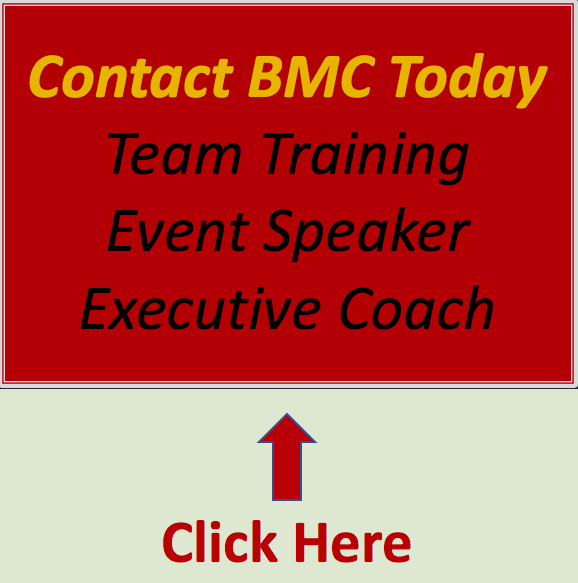How to have a difficult conversation with a hostile or toxic employee
/Hostile, toxic employees are just bad gone worse. They are a drain on morale, productivity and likely other great, loyal employees.
And hostile, toxic employees come in all shapes and sizes. Some are experts in passive aggressiveness, others are condescending and demoralizing, while others might actively sabotage other people’s work – or take credit for it.
The easy way to manage a hostile or toxic employee is to let them be until the pressure around them blows and the only choice to manage the conflict is to fire them. Unfortunately, the damage of lost employees, clients and productively left in their wake – often for years – will likely be considerable.
The bolder and better way to manage a hostile or toxic employee is to first accept that a hostile, toxic person may not realize their behaviour. Seriously – they may not… as difficult as that is to imagine. Next, I recommend quickly preparing yourself to have a difficult conversation with them about their behaviour. The great part of this is that while a difficult conversation will likely be uncomfortable, it has not yet reached the boiling level of conflict. A difficult conversation lets you both discuss the issue and gives them an opportunity to choose to change. Conflict usually has only one uncomfortable, messy outcome.
So, how do you prepare for the important difficult conversation and plan your approach? I recommend starting with two simple steps, observe and document.
Observe: Take note of the hostile, toxic behaviours you are seeing. What is happening? Where is it happening? When is it happening? With whom is it happening? Don’t add your interpretation of ‘why’ it is happening. Any ‘story’ you may think is the reason they are being hostile or toxic will likely not be accurate and will not be helpful. Later, during the discussion if they choose to share ‘why’ then let them, but during the observation phase, the ‘why’ doesn’t matter very much.
Document: Keep notes of what, where, when and with whom. You want to have hard examples to share and discuss with them. And let’s be clear – this is for discussion purposes, to help them understand what they are doing that is not OK, to perhaps help them see a pattern of behaviour. This is not blame or vindication.
OK, you’ve done steps 1 and 2. Now what? This could be a really long article if I went into detail, so let me suggest the following as reference points on how to move forward. The general sense is to share what you see, explore causes, and to begin building a better path forward that is in-line with the company vision, values and policies.
Steps to having a difficult conversation with a hostile or toxic employee:
Consider including HR and / or an HR lawyer, especially in severe cases. They can offer guidance up front, and if things continue or escalate their support will be required, while likely minimizing your exposure.
Mention you have something important to share and are eager to find a positive solution versus requiring a disciplinary action
Discuss their behaviour. Do not discuss or attack their character – this will make it personal, and you don’t want that.
Give direct and honest feedback of undesirable behaviour you’ve observed using specific examples how that behaviour does not support the values and policies of the company. This may be news to them so help them understand.
Share the behaviour you expect and how they can support the values and policies of the company
Be clear their behaviour needs to change
Don’t debate, toxic people are often good at debating meaning, twisting goals and responsibility
Discuss consequences if an improvement plan cannot be agreed upon
Help them change, develop an improvement plan with them setting clearly defined, measurable goals
Offer a coach if the company has access
Confirm their agreement / commitment
While overall performance discussions should be private, there may be times during a work day you need to stop undesirable behaviour as it is happening. Do it gently and move on – don’t make a public spectacle, just like you should with all employees.
Mention you are happy you were able to discuss this and find a positive path forward versus requiring a disciplinary action
Document everything, the bad and the good. Especially if progress is being made you will want to discuss and reward that progress.
Practice self-care and support care for the rest of the team
Don’t let yourself or the team be distracted so that major deliverables and goals suffer
These steps will help you prepare for a difficult conversation with a hostile or toxic employee and find a way forward with (hopefully) the least amount of stress and anxiety.
One last thing. While you are working through the situation with your hostile or toxic employee, don’t forget to care for the rest of your team. They likely need a bit of TLC and support since they have – and may continue to experience some of that undesirable behaviour.
How to support the rest of the team:
Be sure to give them positive feedback on their success / their effort
Encourage them to focus on their success / their effort
Don’t focus on what the toxic person is doing / not doing
Encourage others to not talk about the toxic person behind their back
Encourage them to give the toxic person support if they see improvement
When they need to talk, listen to support them, not discuss the toxic person
Offer them professional counselling / mentoring
Do your best to insulate them / distance them from the toxic employee
Thank you for reading ‘How to have a difficult conversation with a hostile or toxic employee’.
Be well and happy communicating, leading and creating a culture of belonging within your company or within your team.
Bruce
Learn More About Bruce Mayhew
Toronto corporate trainer and executive coach Bruce Mayhew Consulting is in the people business… it just so happens that training and/or executive coaching is involved. Let us help you improve your productivity and employee engagement.
To learn more about how leadership training can to improve your skills call us at 416.617.0462.
Bruce Mayhew Consulting's most popular programs are Email Etiquette Training, Difficult Conversations, Generational Differences, Leadership Skills Training and Time Management Training
Related Workshops That Drive Business Success
Toronto based corporate trainer and executive coach Bruce Mayhew Consulting offers leadership training and professional development across Canada and the USA.



